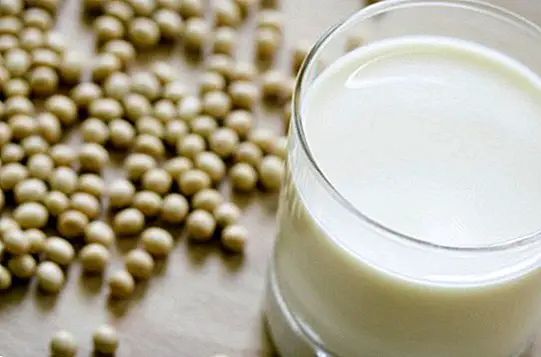Soy milks enriched with plant sterols: do they help against cholesterol?
In recent years the consumption of the so-called soy milk, although as we have already mentioned on several occasions, it is not really a milk drink conceived and understood as such, but rather it is called by the name of soy drink.
In the scientific literature, everything has to be said, there are different lines of research that do not end up agreeing. On the one hand, the different benefits and nutritional qualities that soy milk provides are defended; while, on the other (as we saw in the article harmful effects of soy milk), some specialists doubt not only about their properties, but also put on the table some of the consequences and effects of regular and long-term consumption of soy foods.

However, the tangible reality is that soy milk has become in recent years an alternative to cow's milk. While, having no cholesterol, is an interesting reduction in their intake, helping to lower high levels of blood fats.
Regarding soy and cholesterol, and particularly to soy milk or drink, its high protein content helps vasodilation, which hinders the formation of thrombi and in turn helps to reduce cholesterol absorption.
We must also mention the presence of its popular isoflavones, which exert a slight reduction in blood pressure and in turn decrease the levels of lipids in the blood.
In addition to the benefits against high cholesterol indicated above, we can currently find ourselves in the market with soy milks enriched with plant sterols.
What are plant sterols?
The plant sterols (also known as plant stanols, phytosterols Or simply phytostanols) are compounds or extracts of natural origin, which in fact we find naturally in many natural foods, although in most cases, always in rather small quantities.
For example, we can find them abundantly in our diet, especially if we follow a varied and balanced diet, as they are in fruits, vegetables, vegetables, nuts (especially nuts), cereals and vegetable oils .
These sterols have the peculiarity of having a structure quite similar to that of cholesterol, but since our body is not able to absorb them, they tend to interfere with the absorption of cholesterol in our intestines. In this way, its quality is evident: cause a decrease in blood cholesterol levels.

Therefore, we are faced with compounds capable of reducing total cholesterol and what is known as bad cholesterol (LDL), thanks to which partially inhibit the absorption of cholesterol, so that combine the consumption of plant sterols with a low-fat diet It can be of great help when it comes to lowering high cholesterol levels.
For example, a study published some years ago in theAmerican Journal of Clinical Nutrition He noted that particularly soy could help reduce cholesterol, even without adding to their composition these plant sterols. That is, without enriching them.
The main reason for this quality is found in the presence of a compound similar to estrogen in its composition, called equol, which would help reduce LDL cholesterol. And with a particularity: would maintain HDL cholesterol levels, only decreasing the bass.
How much soy milk should we take for this benefit?
In this sense, some studies have found that drink a day between 2 to 3 glasses of soy milk enriched with plant sterols would help a 10% reduction in LDL cholesterol, by assuming the intake of between 1.5 to 2.4 grams of sterols per day. This article is published for informational purposes only. You can not and should not replace the consultation with a Nutritionist. We advise you to consult your trusted Nutritionist. ThemesSoybean vegetable drink


